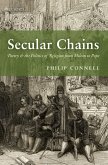The state is at its most volatile when supreme power changes hands. This book studies five such moments of transfer in the sixteenth and early seventeenth centuries, from Henry VIII to the English Revolution, pazying particular attention to the political function and agency of drama in smoothing the transition. Masques and civic pageants served as an art form by which incoming authority could declare its power, and subjects could express their willing subordination to the new regime. The book contains vivid case studies of these dramatic works, some of which have never before been identified, and the circumstances for which they were written: the use of London street theatre in 1535 to promote Henry VIII's arrogation of Royal Supremacy; the aggressively Protestant court masque of 1559 which marked the accession of Elizabeth I, and the censorship which resulted when the same mode of dramatic discourse spread to more plebeian stages; the masques and entertainments of James I's initial year on the English throne, through which the new Stuart dynasty asserted its legitimacy and individual courtiers made their bids for influence; and the formal coronation entry to London, furnished with dramatic pageants, which London paid for but Charles I refused to undertake. The final chapter describes how, in 1642, a very different incoming regime planned to ignore drama altogether, until some surprisingly contingent circumstances forced its hand.
Dieser Download kann aus rechtlichen Gründen nur mit Rechnungsadresse in A, B, BG, CY, CZ, D, DK, EW, E, FIN, F, GR, HR, H, IRL, I, LT, L, LR, M, NL, PL, P, R, S, SLO, SK ausgeliefert werden.









